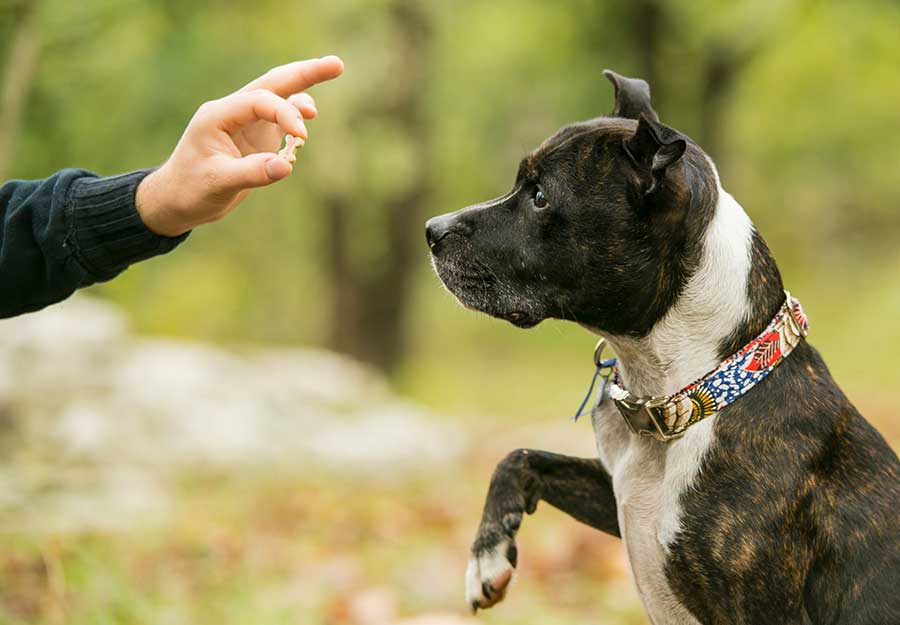Discovering Alternatives for Dog Training Charlotte: What You Required to Know
Discovering Alternatives for Dog Training Charlotte: What You Required to Know
Blog Article
Unlock Your Pet dog's Prospective: Proven Pet Training Approaches for Success
Reliable canine training is a nuanced process that pivots on comprehending canine behavior and using scientifically backed strategies. By integrating positive reinforcement, establishing clear commands, and focusing on socialization, dog proprietors can cultivate an efficient relationship with their pet dogs.
Comprehending Dog Habits
Understanding pet dog behavior is essential for effective training and cultivating a favorable partnership in between canines and their proprietors. A detailed understanding of canine body language, articulations, and social interactions is vital for recognizing their emotions and demands. Dogs communicate mostly via non-verbal cues; for instance, a wagging tail might indicate enjoyment, while pinned ears can signify worry or entry.

In addition, ecological aspects play a substantial function fit a canine's behavior. Changes in routine, brand-new environments, or the existence of unfamiliar individuals can bring about stress and anxiety or anxiousness in pets. Identifying these triggers allows owners to mitigate damaging responses and establish suitable training strategies.
Inevitably, a deep understanding of canine behavior lays the structure for successful training approaches, enhancing both behavior and the overall bond in between the canine and its proprietor. dog training charlotte. This expertise is vital for fostering a well-adjusted, satisfied canine buddy
Positive Support Techniques
Reliable training depends greatly on favorable reinforcement methods, which have been revealed to yield substantial lead to forming desired actions in canines. This approach includes rewarding a pet dog for exhibiting certain behaviors, consequently increasing the chance that these habits will certainly be repeated. Benefits can take numerous types, including treats, appreciation, toys, or playtime, relying on what inspires the specific dog.

It is vital to slowly eliminate rewards as the pet discovers the behavior, transitioning to periodic reinforcement. This approach keeps the habits over time while protecting against reliance on constant incentives. By concentrating on favorable reinforcement, trainers can grow a relying on relationship with their dogs, advertising a healthy and participating training environment that enhances total obedience and performance.
Developing Constant Commands
A basic element of effective pet dog training is the facility of constant commands. Uniformity in commands is important for reliable communication in between the canine and the instructor. When commands are uniform, pet dogs learn to connect details words with preferred behaviors, which increases the training process and improves understanding.
To develop consistent commands, it is necessary that all relative utilize the very same terminology and motions. If one individual uses "rest" while another says "sit down," it can produce complication for the dog. Select clear, distinct words for commands and make sure every person associated with the canine's training follows these choices.
In addition, repetition is key. Strengthen commands with regular technique, ensuring that the dog receives sufficient chances to respond properly. When a pet dog effectively adheres to a command, prompt favorable support needs to adhere to. This can be in the kind of deals with, praise, or playtime, solidifying the connection between the command and the action.
Finally, hold your horses. Developing constant commands takes some time and effort. With dedication and quality, you will certainly assist your canine develop a solid understanding of assumptions, inevitably causing a well-behaved companion.
Socializing and Direct Exposure
Interacting socially a canine is important for fostering a well-adjusted and certain buddy. This process entails subjecting your dog to a selection of atmospheres, people, and various other animals to create their social skills and adaptability. Early socializing, ideally in between the ages of three to fourteen weeks, is crucial, as it these details prepares for a canine's future actions.
During socializing, goal to provide favorable experiences in various setups, such as parks, busy roads, and homes with other family pets. Introduce your pet to various stimulations, including noises, sights, and smells, guaranteeing that each encounter is fulfilling. This exposure aids reduce anxiety and stress and anxiety, leading the way for an extra resilient dog.
Participating in regulated group play sessions with other pets can also improve social abilities, instructing your pet dog appropriate interactions and borders. Always monitor your pet dog's convenience level during these experiences, progressively increasing exposure as their self-confidence expands. Remember, the goal is to create a well-shaped pet that flourishes in varied scenarios, promoting a harmonious connection with both people and various other pets. Focusing on socialization will dramatically add to your dog's general happiness and habits throughout their life.
Overcoming Common Training Challenges

Pets may struggle to concentrate in active or unfamiliar settings. Progressively desensitize your canine to distractions by starting training in a peaceful setting and gradually introducing more stimuli as they end up being proficient.
In addition, behavioral issues like jumping or excessive barking can come to be frustrating. Address these by instructing alternate habits, such as resting comfortably when welcoming visitors. Uniformity and perseverance are crucial; reinforce pet cpr and first aid desired behaviors regularly and prevent scolding, which can cause complication.
Finally, acknowledge that each pet dog is special, and training timelines might differ. Dressmaker your technique to your pet dog's private requirements, and seek expert assistance if required. With perseverance and the best techniques, conquering these challenges can cause a trained, satisfied canine friend.
Verdict
Finally, opening a canine's potential necessitates a comprehensive strategy that includes an understanding of canine habits, the application of positive support techniques, and the establishment of regular commands. Early socialization and exposure to varied atmospheres even more enhance a pet's versatility and confidence. By addressing usual training difficulties with customized strategies and caesar millan dog trainer perseverance, a participating and harmonious partnership between dog and trainer can be fostered, inevitably leading to a mannerly buddy with the ability of prospering in numerous scenarios.
Effective pet training is a nuanced process that pivots on comprehending canine actions and utilizing medically backed techniques.Recognizing canine actions is vital for effective training and promoting a positive partnership between pet dogs and their owners.Efficient training counts heavily on favorable support techniques, which have actually been revealed to yield substantial outcomes in shaping wanted behaviors in canines. When commands are consistent, dogs discover to link specific words with preferred actions, which accelerates the training process and improves understanding.
In verdict, unlocking a canine's prospective necessitates a detailed strategy that incorporates an understanding of canine habits, the application of favorable support strategies, and the facility of consistent commands.
Report this page